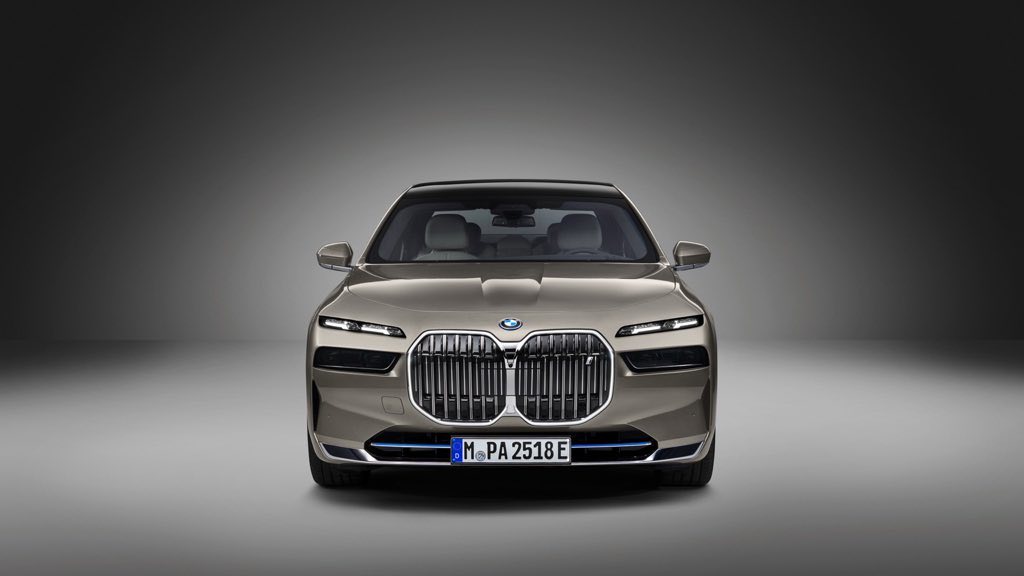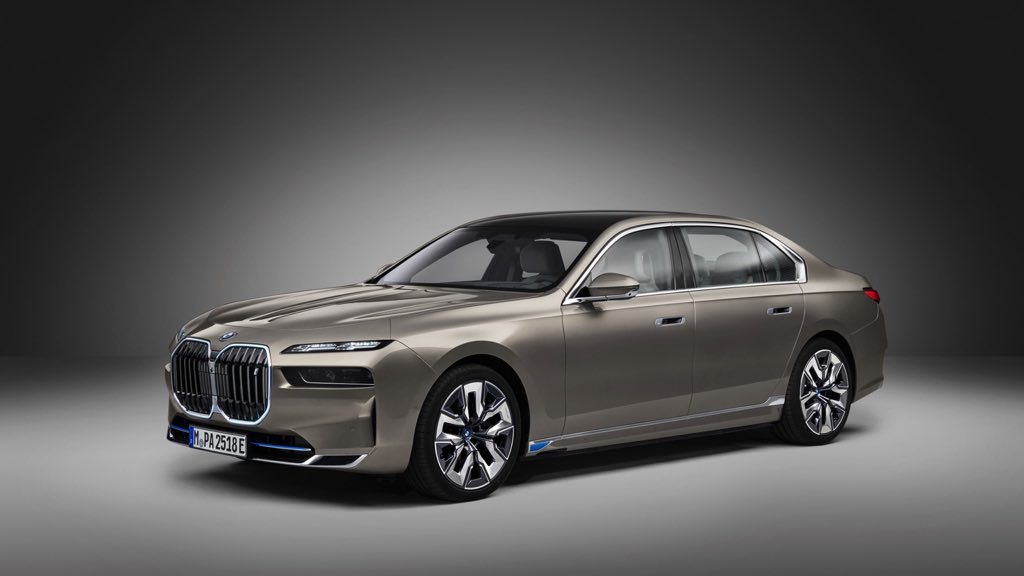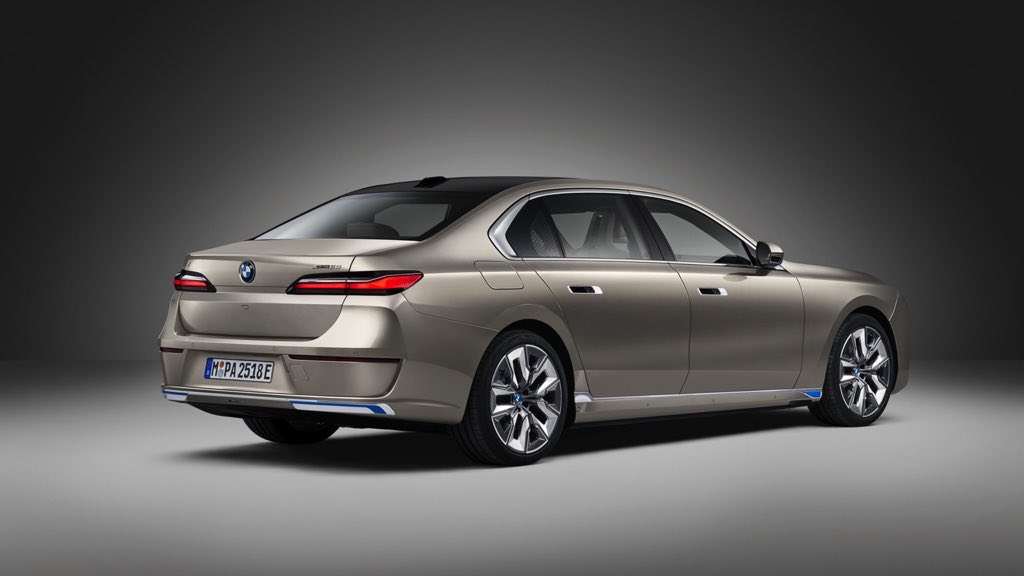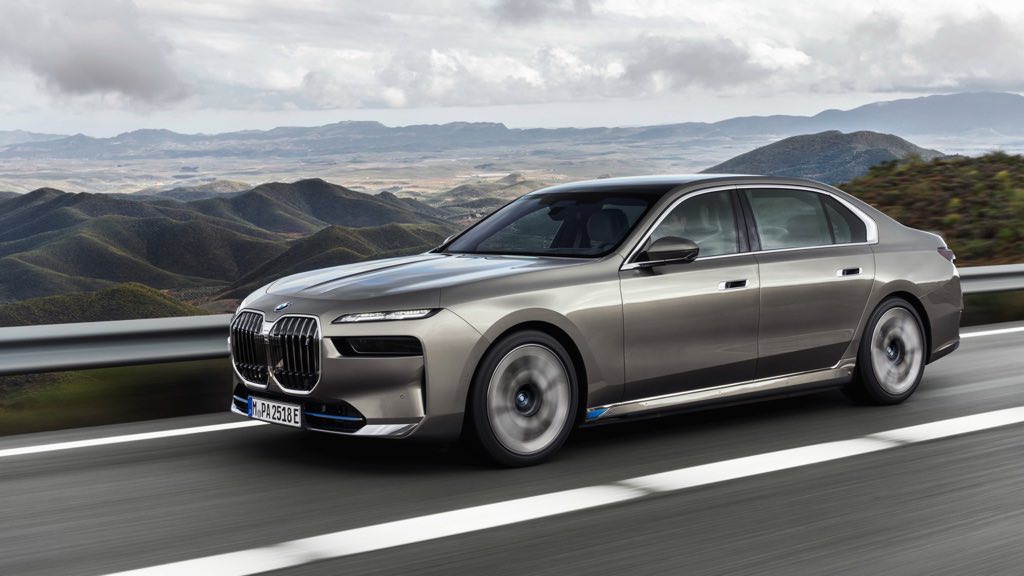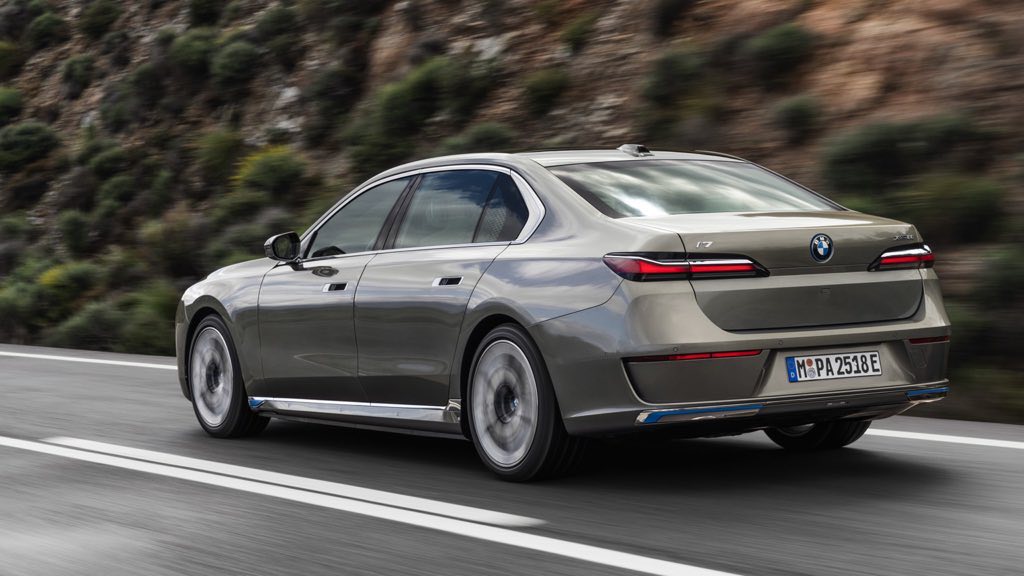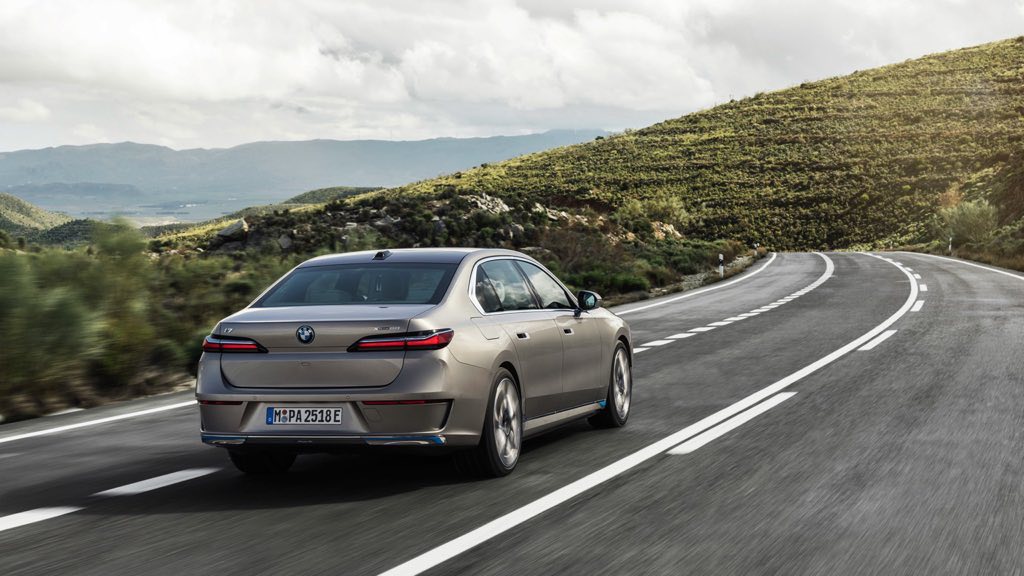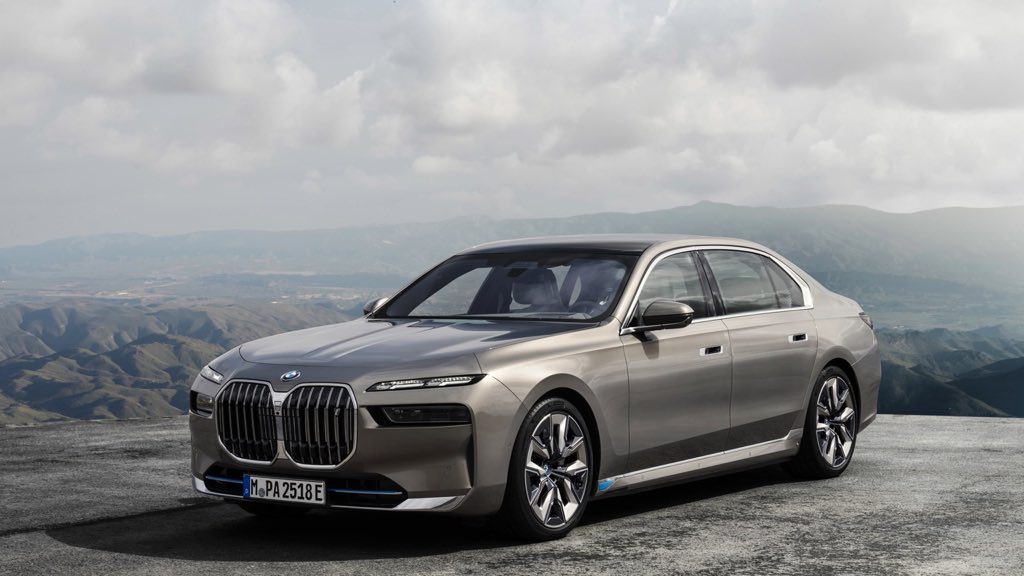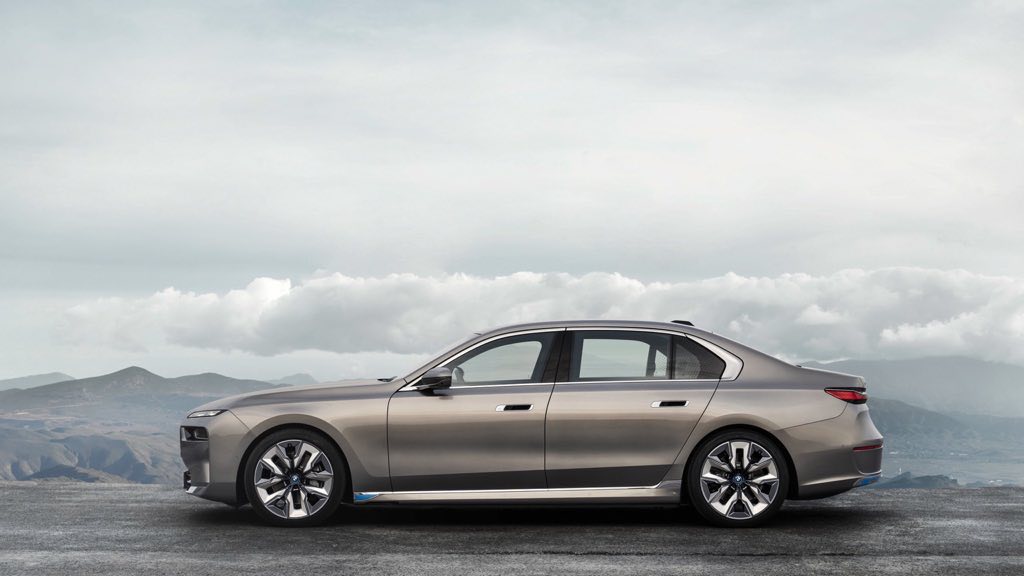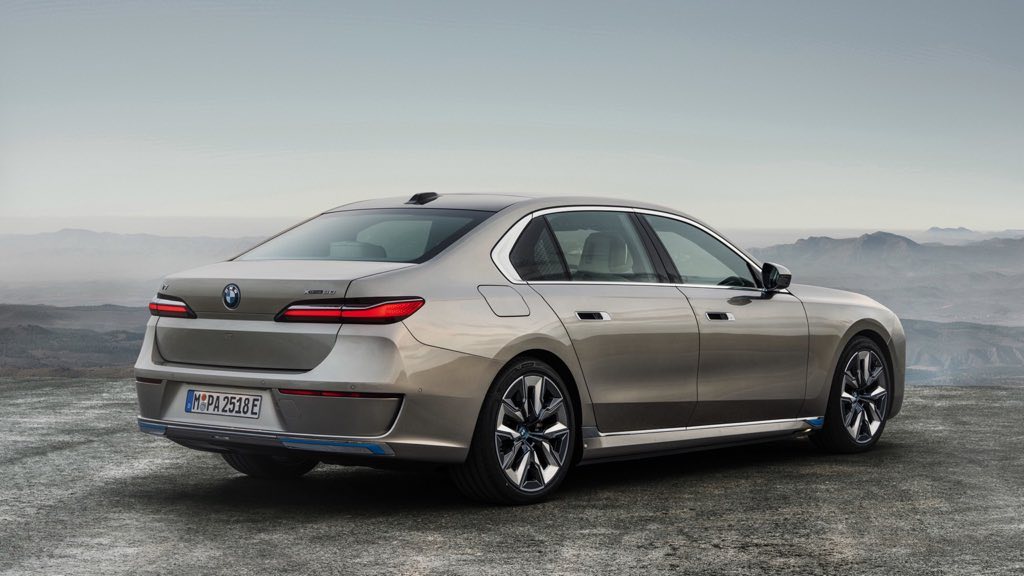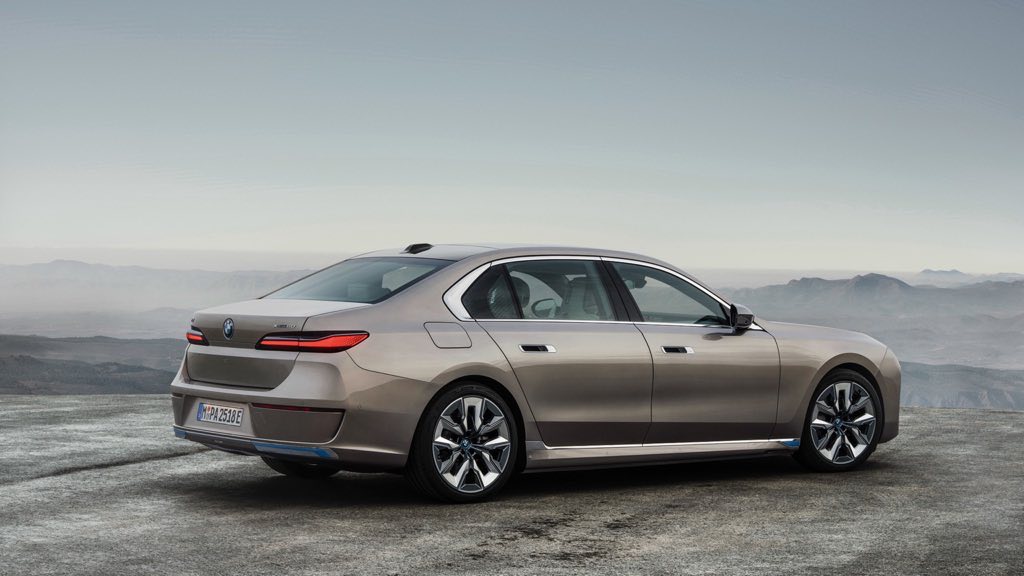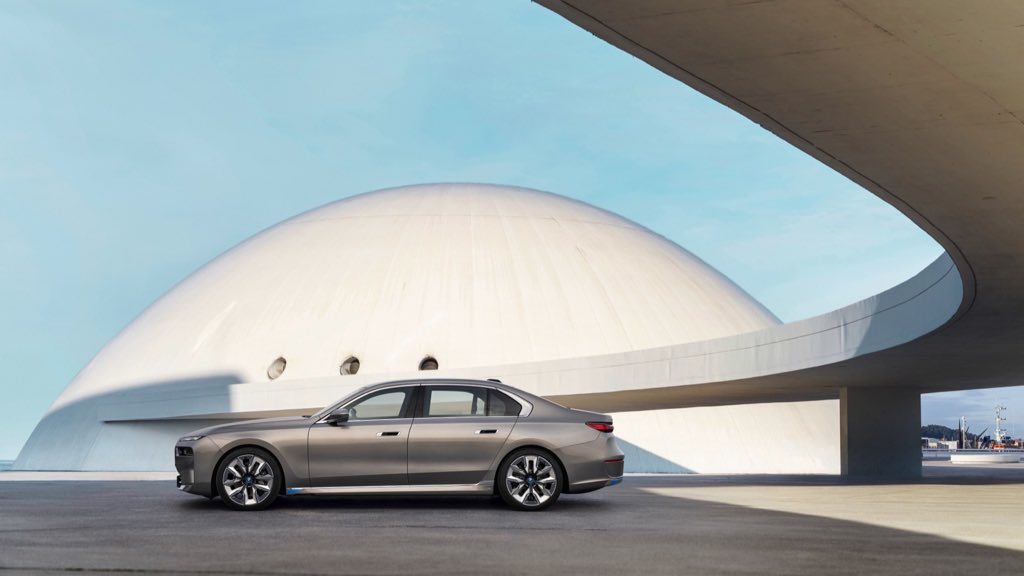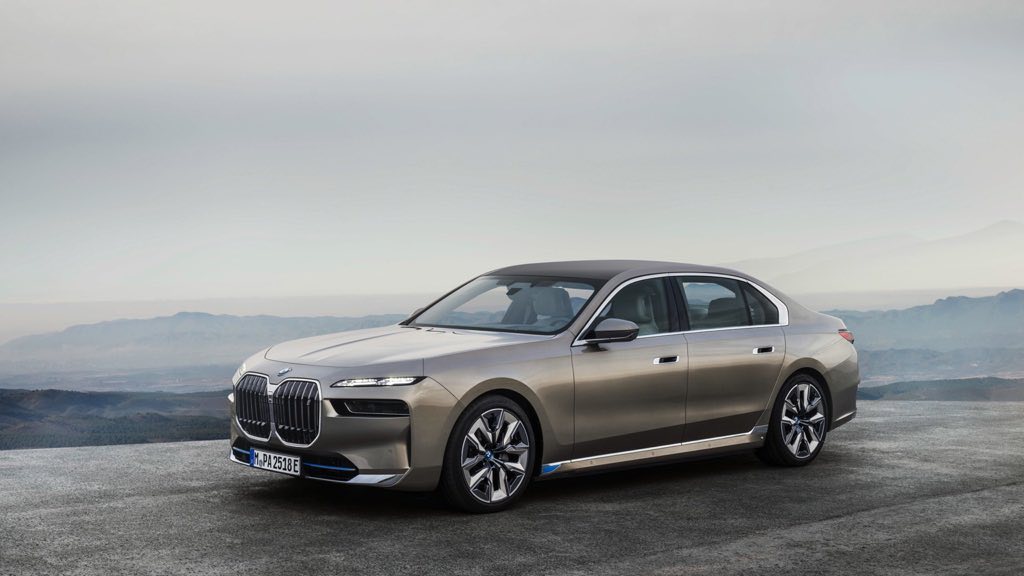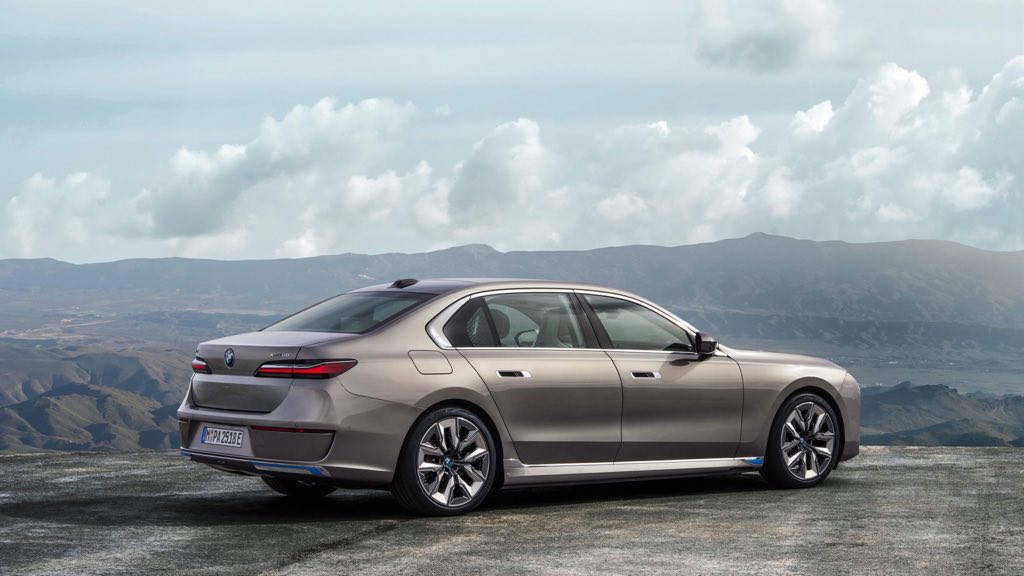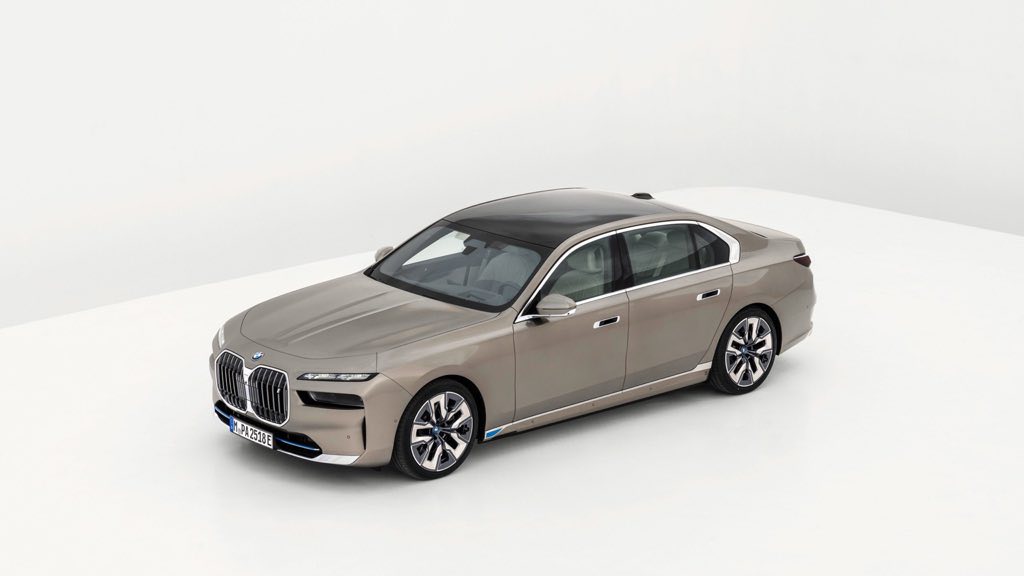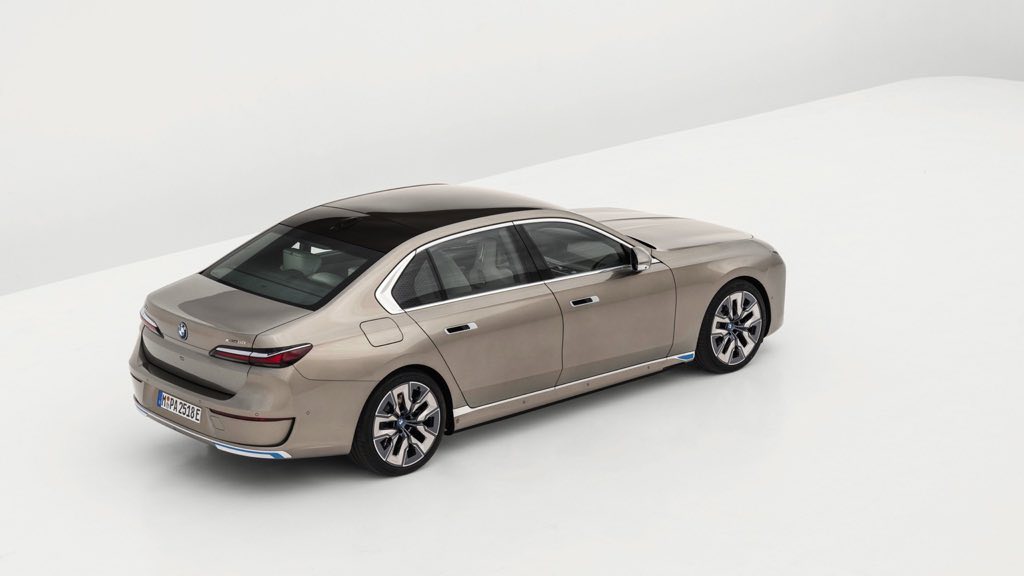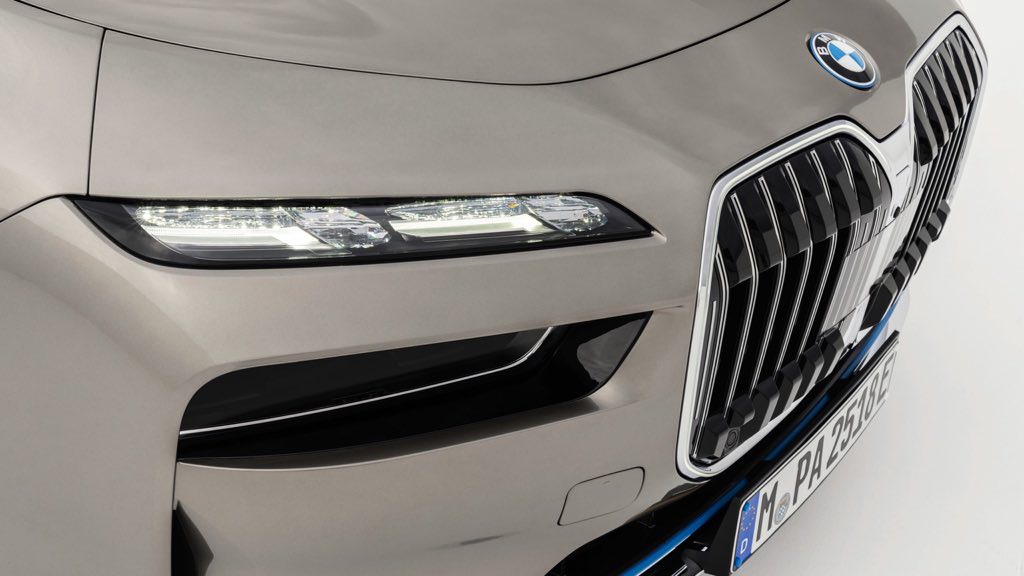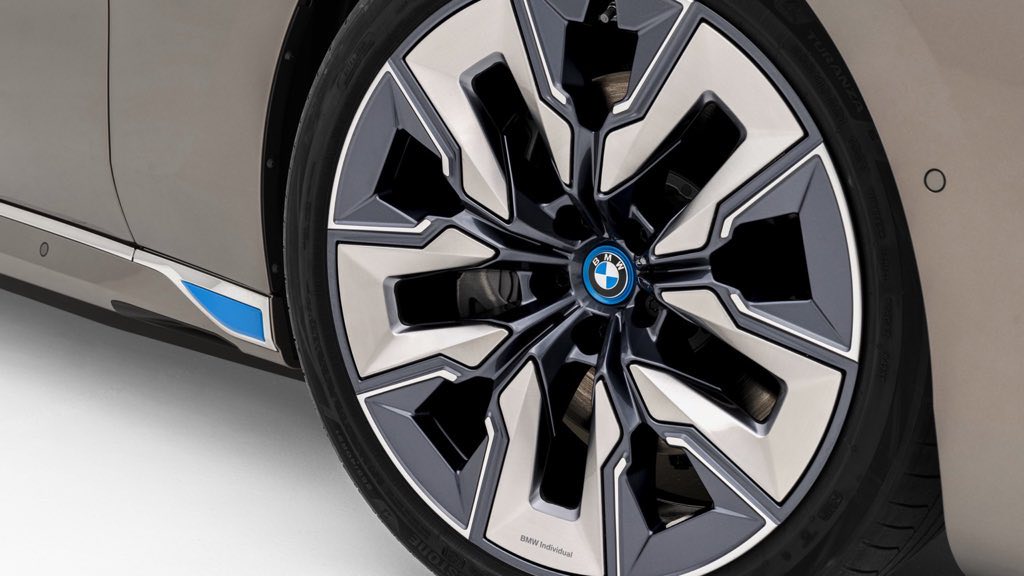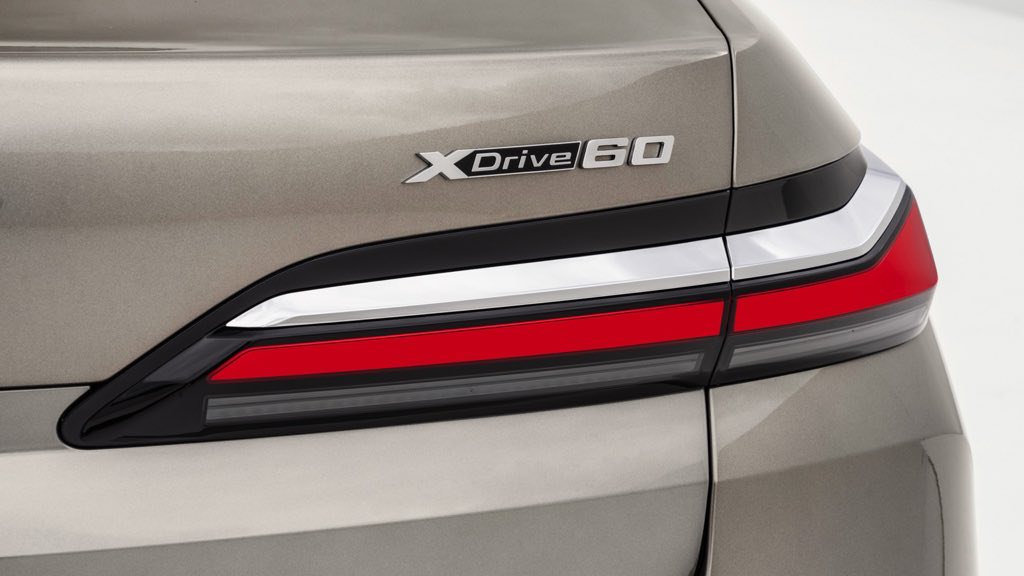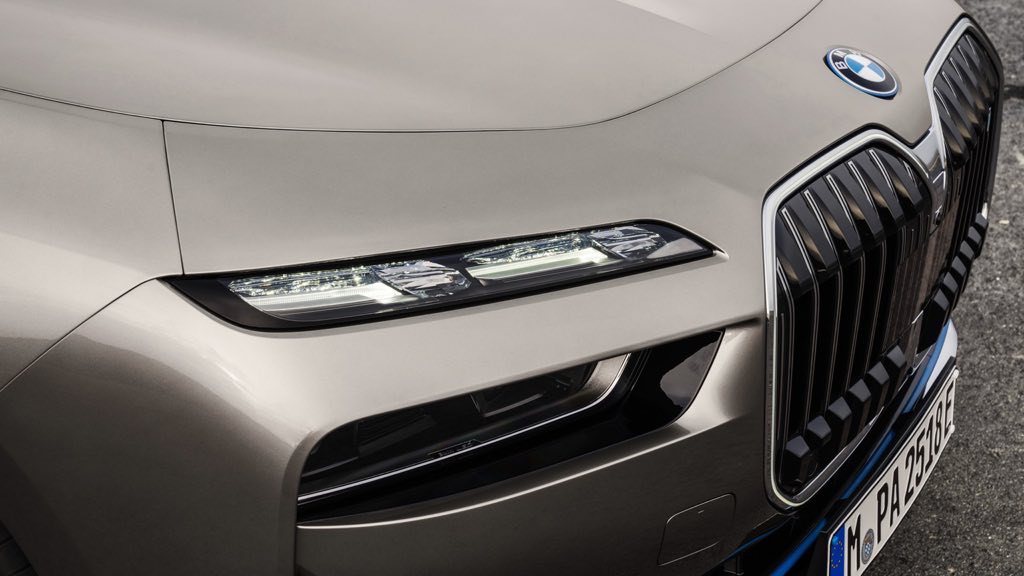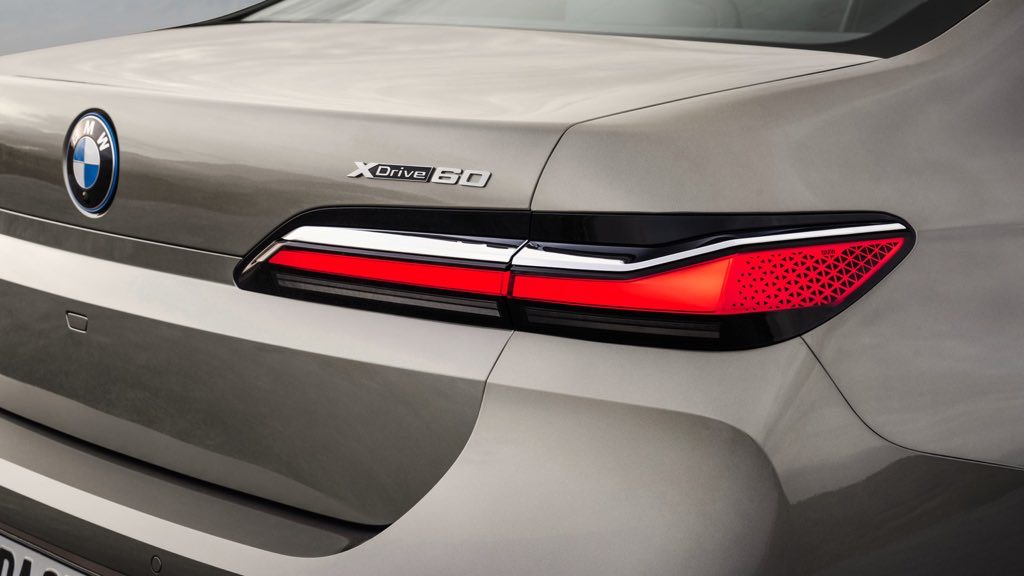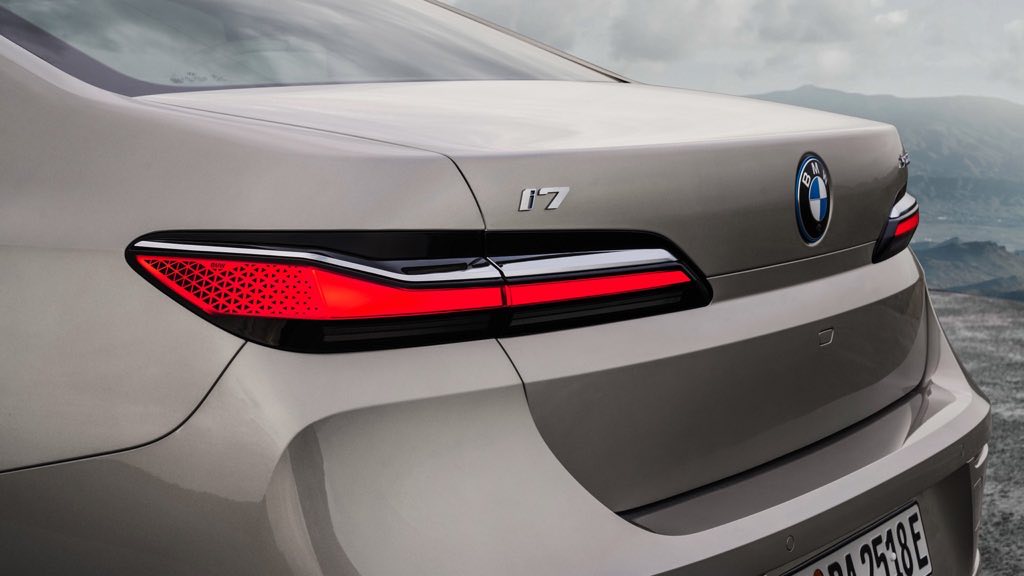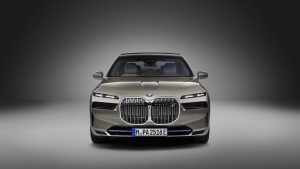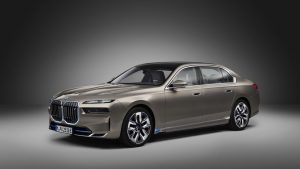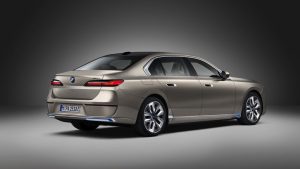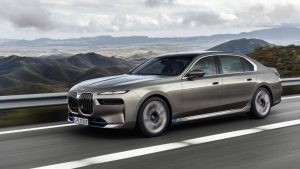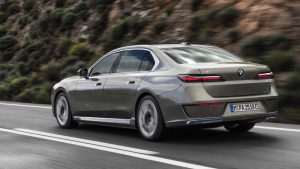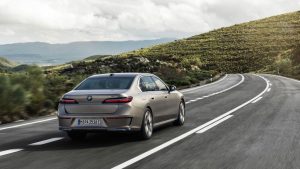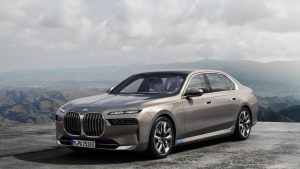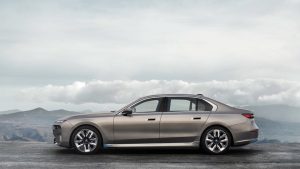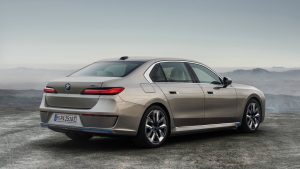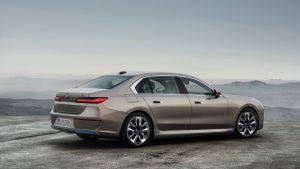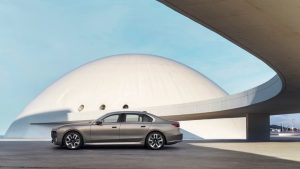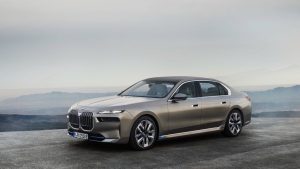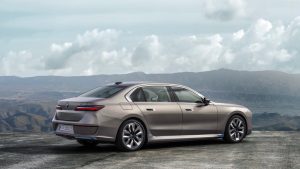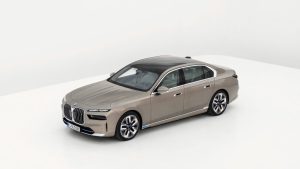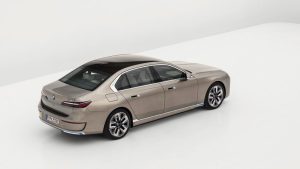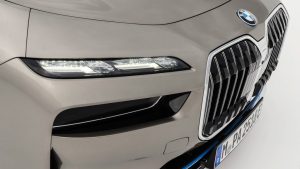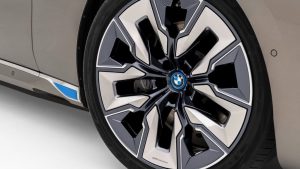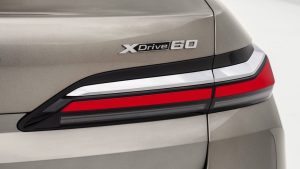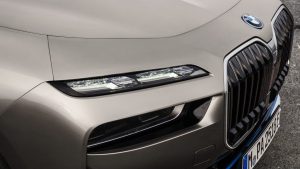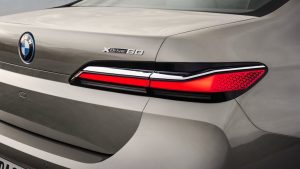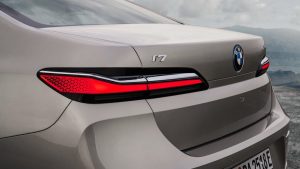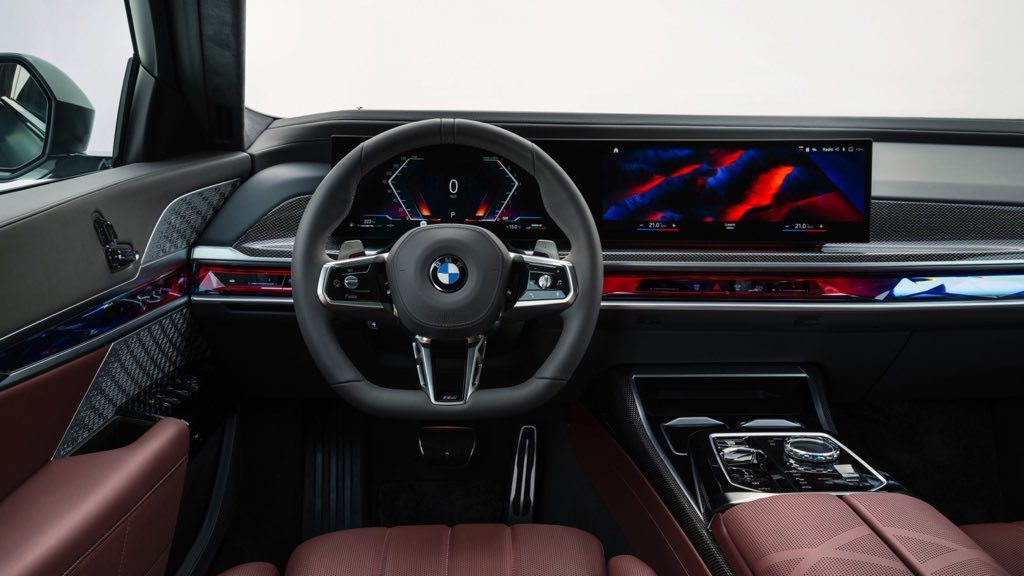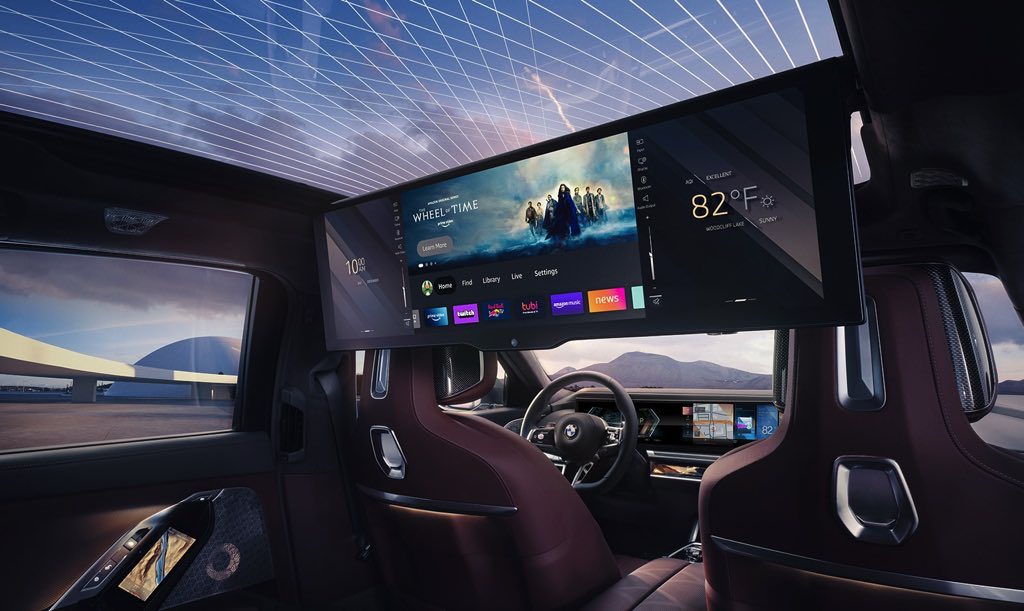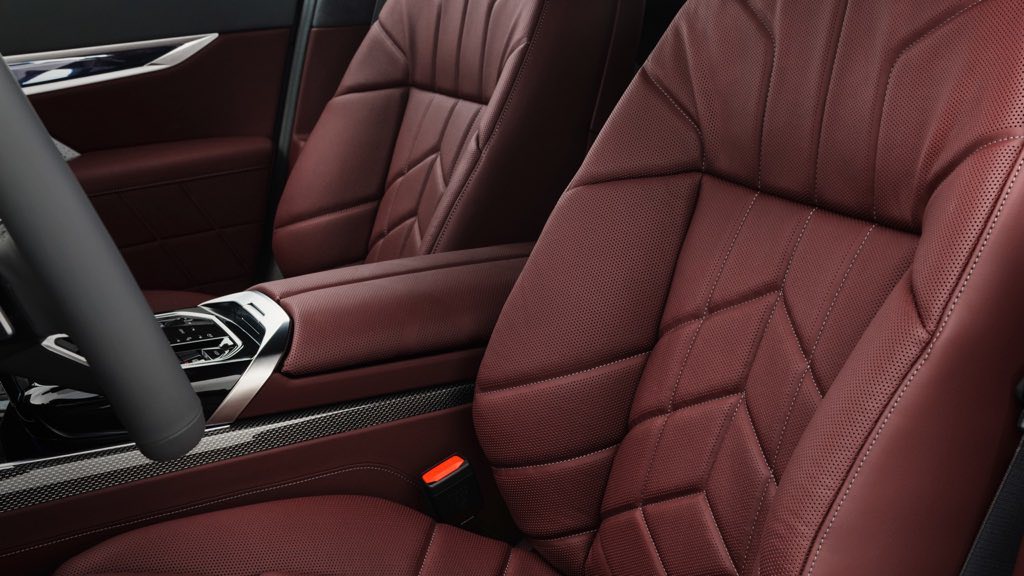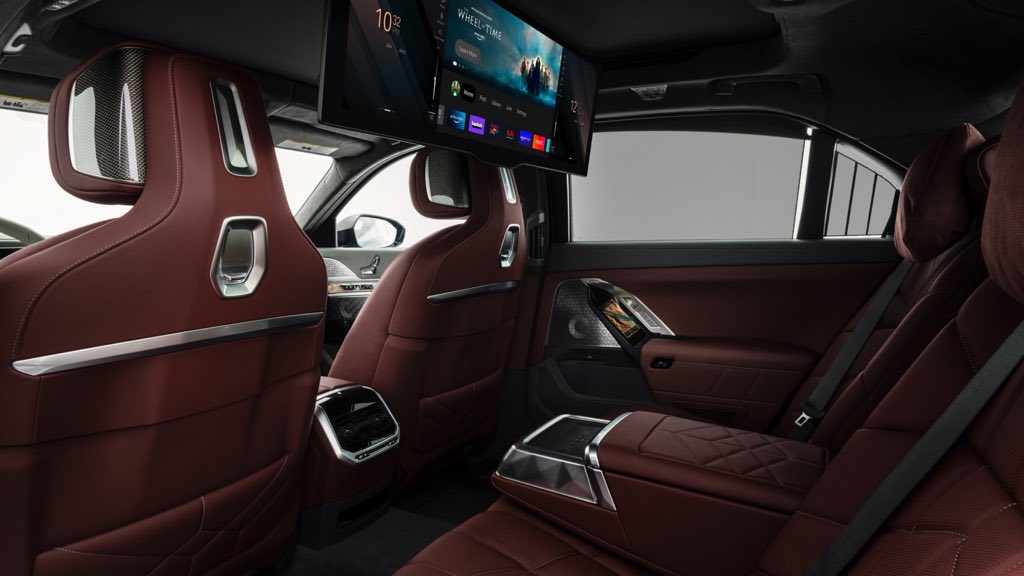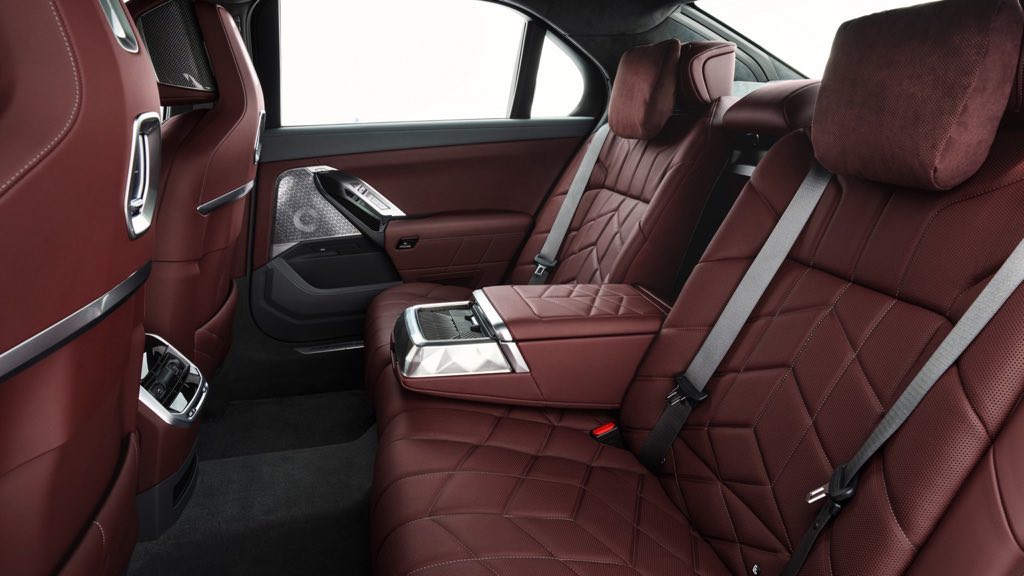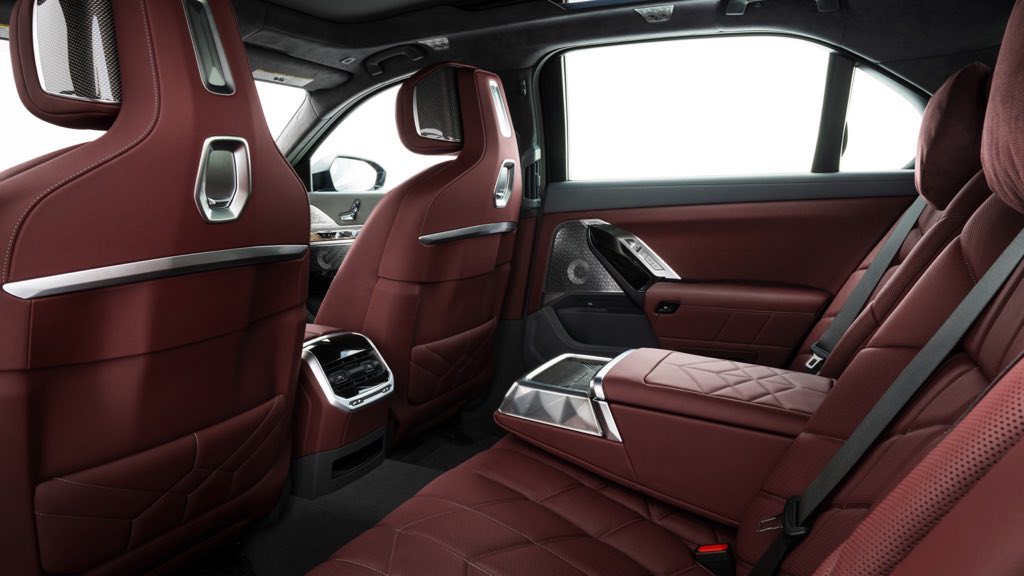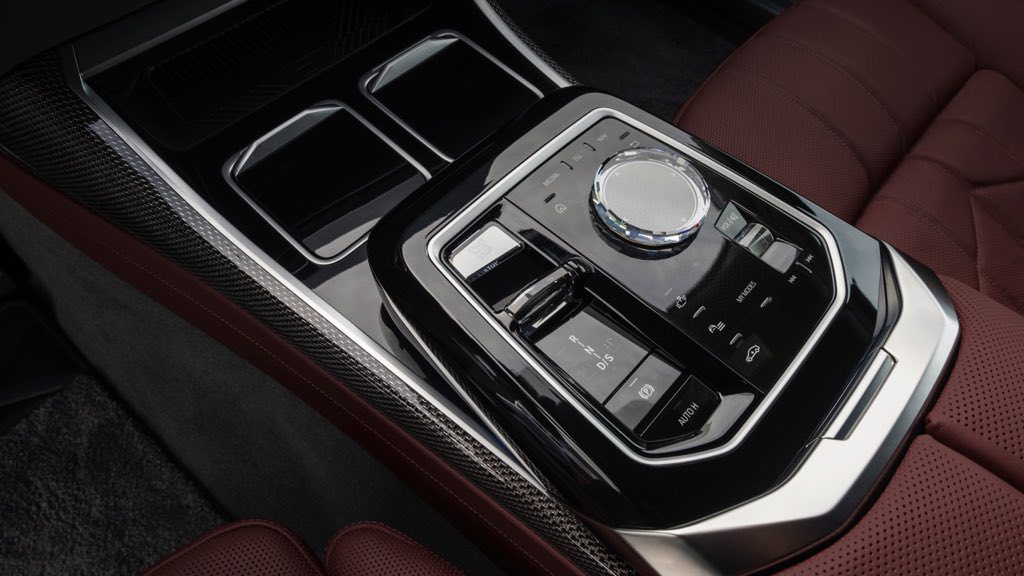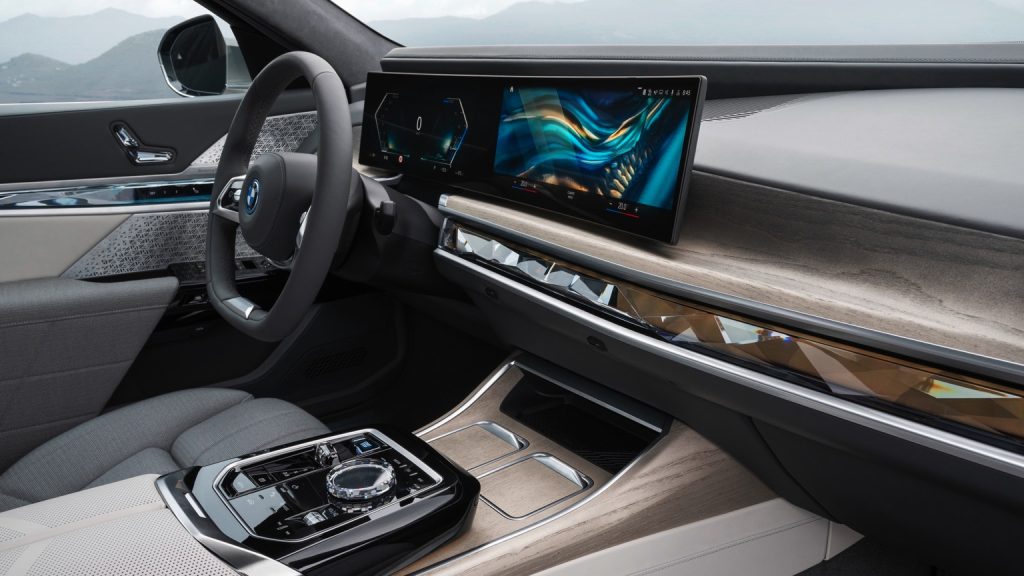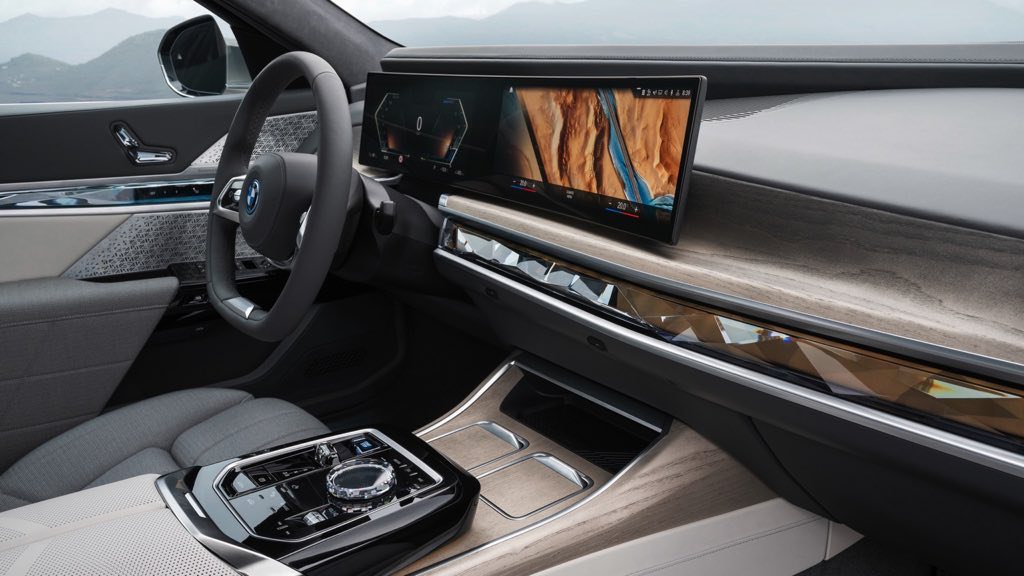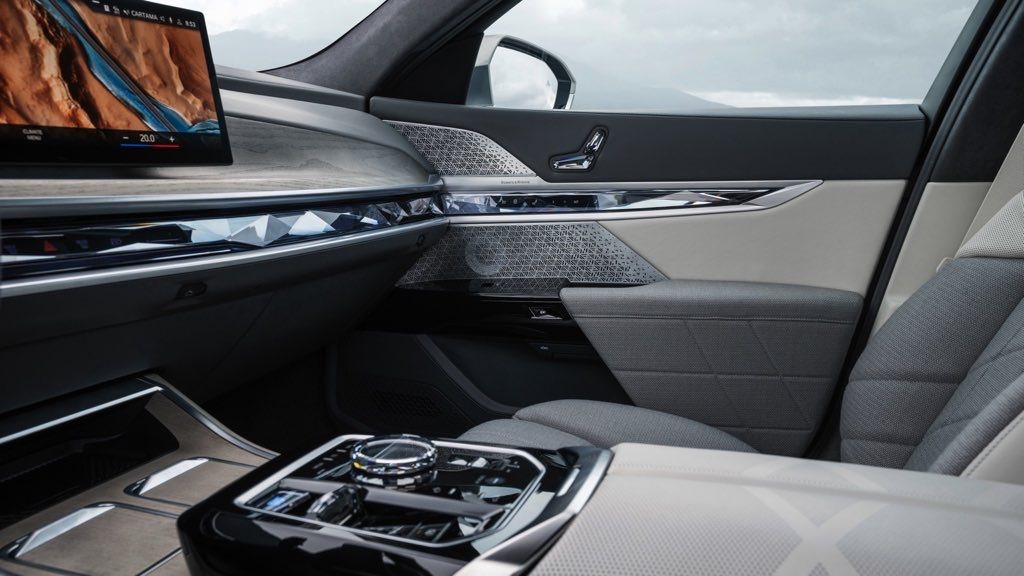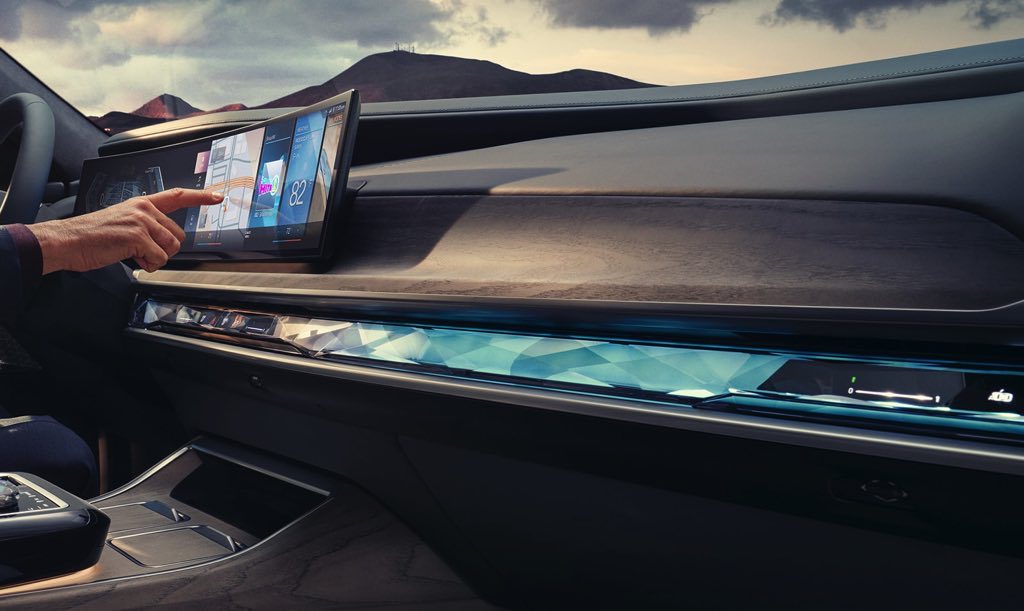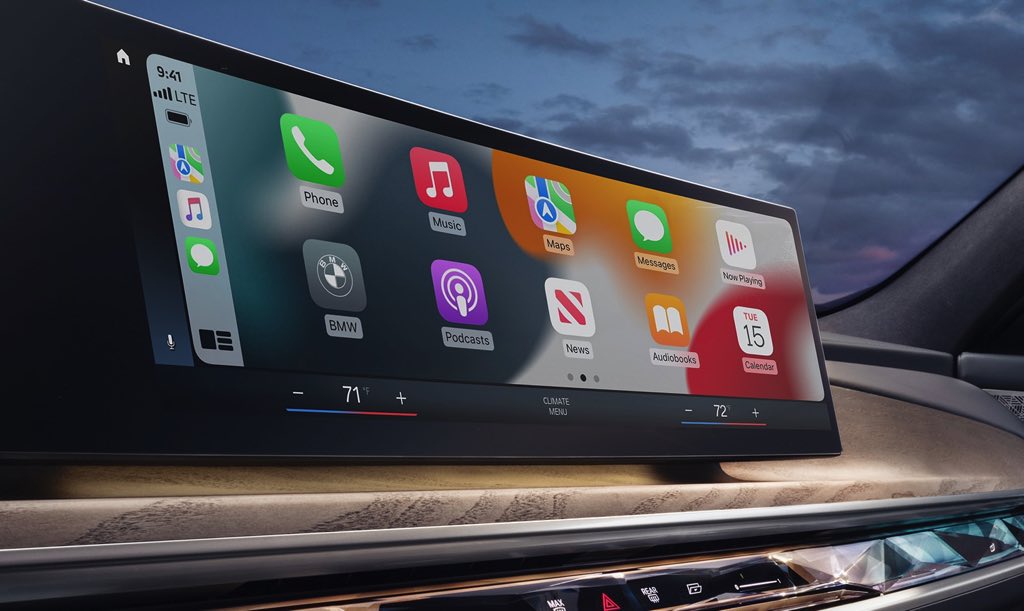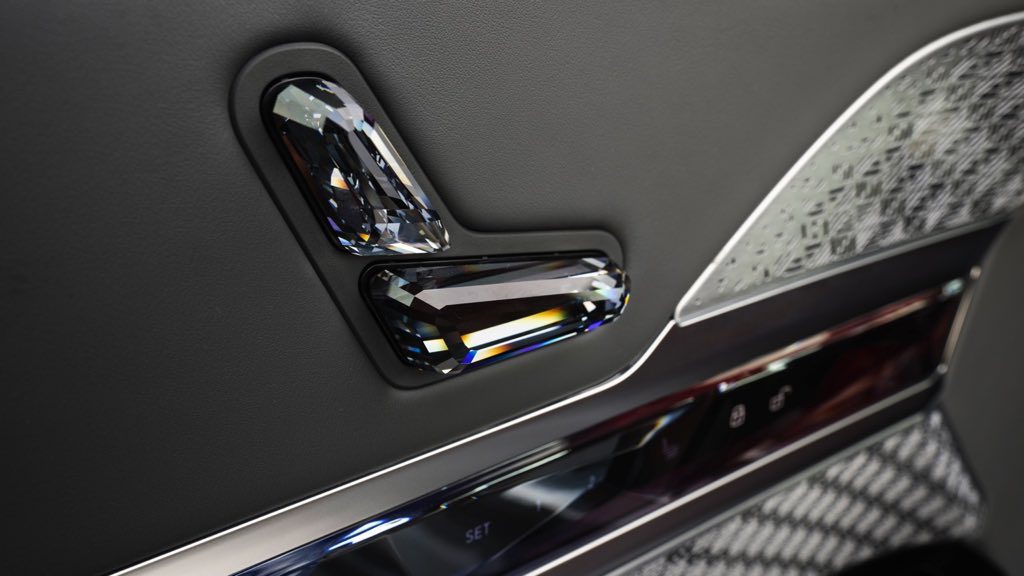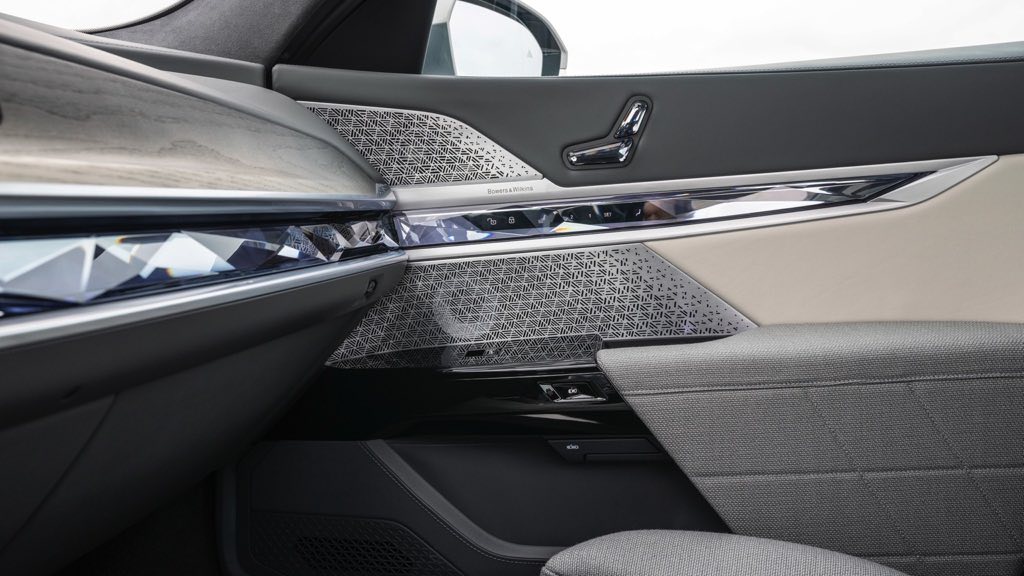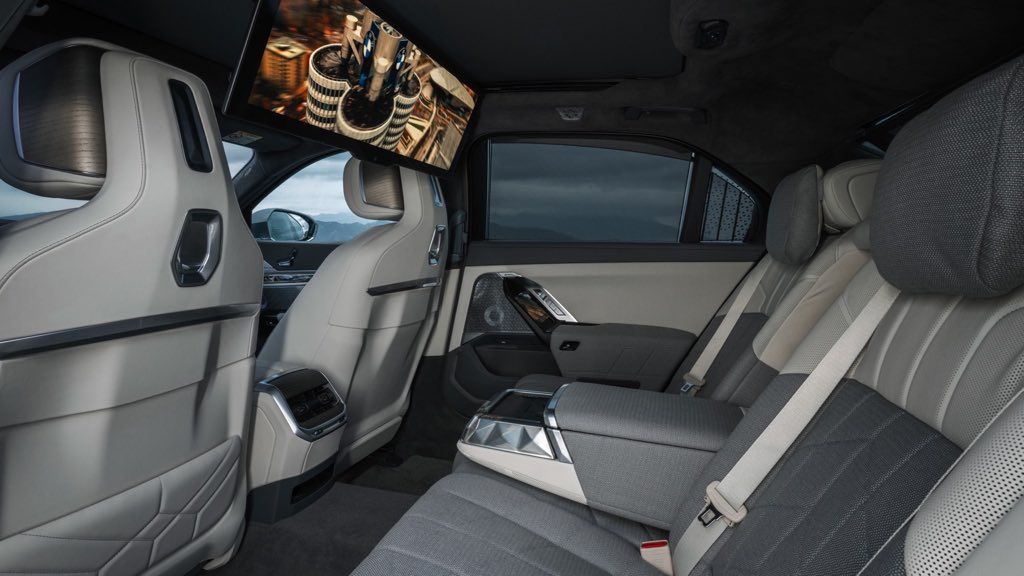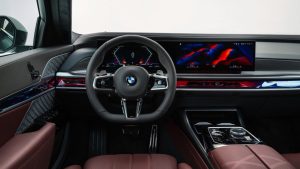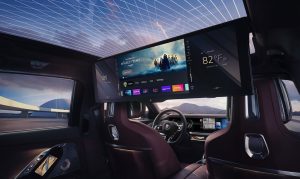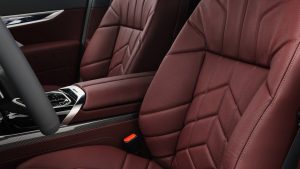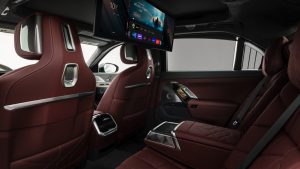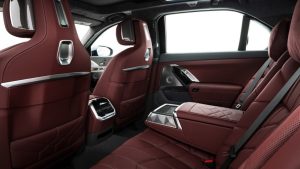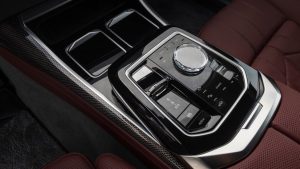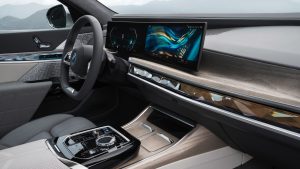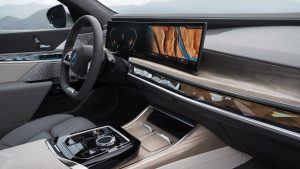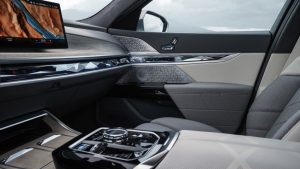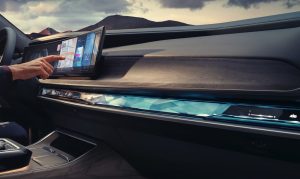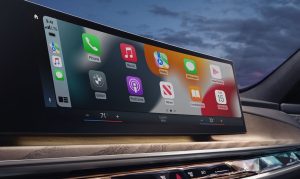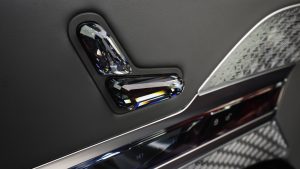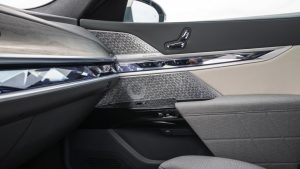BMW i7 xDrive60
The BMW i7 xDrive60 is an upcoming luxury electric sedan from the German automaker BMW. It is expected to be the flagship electric vehicle in BMW’s lineup and will compete with other high-end electric sedans such as the Tesla Model S and Porsche Taycan.
The i7 xDrive60 is powered by a dual-motor electric drivetrain that produces 745 Nm of torque. It has a range of up to 510 km on a single charge, making it one of the longest-range electric vehicles on the market. The i7 xDrive60 can accelerate from 0-100 km/h (60 mph) in just 4.7 seconds, making it a powerful and sporty electric sedan.
The i7 xDrive60 will also feature BMW’s latest technology and luxury features, including a high-resolution infotainment display, a premium sound system, and advanced safety features such as adaptive cruise control and automated emergency braking.
Overall, the BMW i7 xDrive60 is an impressive luxury electric sedan that offers a powerful and sporty driving experience, a long-range, and the latest in technology and luxury features. It is expected to be released in 2022 and will likely be priced at a premium compared to other electric sedans on the market.
| Performance | |
| Acceleration 0 – 100 km/h | 4.7 sec |
| Top Speed | 240 km/h |
| Electric Range | 510 km |
| Total Power | 400 kW (544 PS) |
| Total Torque | 745 Nm |
| Drive | AWD |
| Battery and Charging | |
| Battery Capacity | 105.0 kWh |
| Battery Useable | 101.7 kWh |
| Europe | |
| Charge Port | Type 2 |
| Port Location | Right Side – Rear |
| Charge Power | 11 kW AC |
| Charge Time (0->510 km) | 11 hours |
| Charge Speed | 47 km/h |
| Fastcharge Port | CCS |
| FC Port Location | Right Side – Rear |
| Fastcharge Power (max) | 195 kW DC |
| Fastcharge Time (51->408 km) | 35 min |
| Fastcharge Speed | 610 km/h |
| Energy Consumption | |
| EVDB Real Range | |
| Range | 510 km |
| Vehicle Consumption | 199 Wh/km |
| CO2 Emissions | 0 g/km |
| Vehicle Fuel Equivalent | 2.2 l/100km |
| WLTP Ratings (TEL) | |
| Range | 625 km |
| Rated Consumption | 184 Wh/km |
| Vehicle Consumption | 163 Wh/km |
| CO2 Emissions | 0 g/km |
| Rated Fuel Equivalent | 2.1 l/100km |
| Vehicle Fuel Equivalent | 1.8 l/100km |
| WLTP Ratings (TEH) | |
| Range | 590 km |
| Rated Consumption | 196 Wh/km |
| Vehicle Consumption | 172 Wh/km |
| CO2 Emissions | 0 g/km |
| Rated Fuel Equivalent | 2.2 l/100km |
| Vehicle Fuel Equivalent | 1.9 l/100km |
| TEL = Test Energy Low | TEH = Test Energy High | |
|
Rated = official figures as published by manufacturer. Rated consumption and fuel equivalency figures include charging losses.
|
|
|
Vehicle = calculated battery energy consumption used by the vehicle for propulsion and on-board systems.
|
|
| Real Energy Consumption Estimation between 142 – 271 Wh/km | |
| City – Cold Weather | 208 Wh/km |
| Highway – Cold Weather | 271 Wh/km |
| Combined – Cold Weather | 237 Wh/km |
| City – Mild Weather | 142 Wh/km |
| Highway – Mild Weather | 212 Wh/km |
| Combined – Mild Weather | 175 Wh/km |
|
Energy use for each trip will vary considerably depending on the driver and the conditions. Therefore, we have provided a range of estimates which can be useful in developing an understanding of the potential benefits of this technology.
|
|
| Dimensions and Weight | |
| Length | 5391 mm |
| Width | 1950 mm |
| Width with mirrors | 2192 mm |
| Height | 1544 mm |
| Wheelbase | 3215 mm |
| Weight Unladen (EU) | 2715 kg |
| Gross Vehicle Weight (GVWR) | 3250 kg |
| Max. Payload | 610 kg |
| Cargo Volume | 500 L |
| Cargo Volume Max | No Data |
| Cargo Volume Frunk | No Data |
| Roof Load | 0 kg |
| Tow Hitch Possible | Yes |
| Towing Weight Unbraked | 750 kg |
| Towing Weight Braked | 2000 kg |
| Vertical Load Max | 80 kg |
| Miscellaneous | |
| Seats | 5 people |
| Isofix | No Data |
| Turning Circle | 12.3 m |
| Platform | BMW CLAR |
| Car Body | Sedan |
| Segment | F – Luxury |
| Roof Rails | No |
| EV Dedicated Platform | No |
Home and Destination Charging (0 -> 100%)
A public charging station is required to use the highest possible charging rate. The EVSE/charging station’s charging capacity affects how long it takes to fully charge the battery. The table below shows all possible options for fully charging the BMW i7 xDrive60.
In Europe, plugging an electric car into an outlet is often as easy as plugging it into a household outlet, but there are differences from country to country. The table below shows the different ways to charge the BMW i7 xDrive60, but in some countries some chargers may not be available.
Type 2 (Mennekes – IEC 62196)

| Charging Point | Max. Power | Power | Time | Rate |
| Wall Plug (2.3 kW) | 230V / 1x10A | 2.3 kW | 52h15m | 10 km/h |
| 1-phase 16A (3.7 kW) | 230V / 1x16A | 3.7 kW | 32h30m | 16 km/h |
| 1-phase 32A (7.4 kW) | 230V / 1x32A | 7.4 kW | 16h15m | 31 km/h |
| 3-phase 16A (11 kW) | 400V / 3x16A | 11 kW | 11 hours | 46 km/h |
| 3-phase 32A (22 kW) | 400V / 3x16A | 11 kW | 11 hours | 46 km/h |
Fast Charging (10 -> 80%)
If you want to enjoy driving an electric car, one of the most important features to consider is the number of miles per hour the car can travel while charged. This is called the “range” of the car. All electric cars have a certain range, even if they are 100% charged. This is because they do not have an internal combustion engine to lean on if you need to drive a long distance.
Max. Power: The maximum power provided by the charging point
Avg. Power: The average power provided by the charging point during a session of 10% to 80%.
Time: the time it takes to charge from 10% to 80%
Speed: the average charging rate during the session of 10% to 80%
Combined Charging System (CCS Combo 2)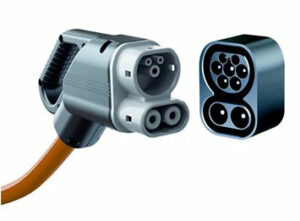
| Charging Point | Max. Power | Avg. Power | Time | Rate |
| CCS (50 kW DC) | 50 kW | 50 kW | 90 min | 230 km/h |
| CCS (100 kW DC) | 100 kW | 85 kW | 53 min | 400 km/h |
| CCS (150 kW DC) | 150 kW | 110 kW | 41 min | 520 km/h |
| CCS (175 kW DC) | 175 kW | 120 kW | 37 min | 570 km/h |
| CCS (350 kW DC) | 195 kW | 130 kW | 35 min | 610 km/h |
| Brand | BMW |
| Model | i7 xDrive60 |
| Body Style | sedan |
| Car Engine | electric |
| Motor power | 400 |
| Maximum Torque, Nm | 745 |
| Battery Energy, kWh | 105.0 |
| Power reserve (NEDC/EPA/WLTP), km | - / - / 510 |
| Level Charging (230/400/DC), hours | 16.5 / 11.0 / 0.35 |
| Electrical Acceleration, 0-100 km/h (0-62.1 mph) in sec | 4.7 |
| Top Speed, km/h | 240 |
